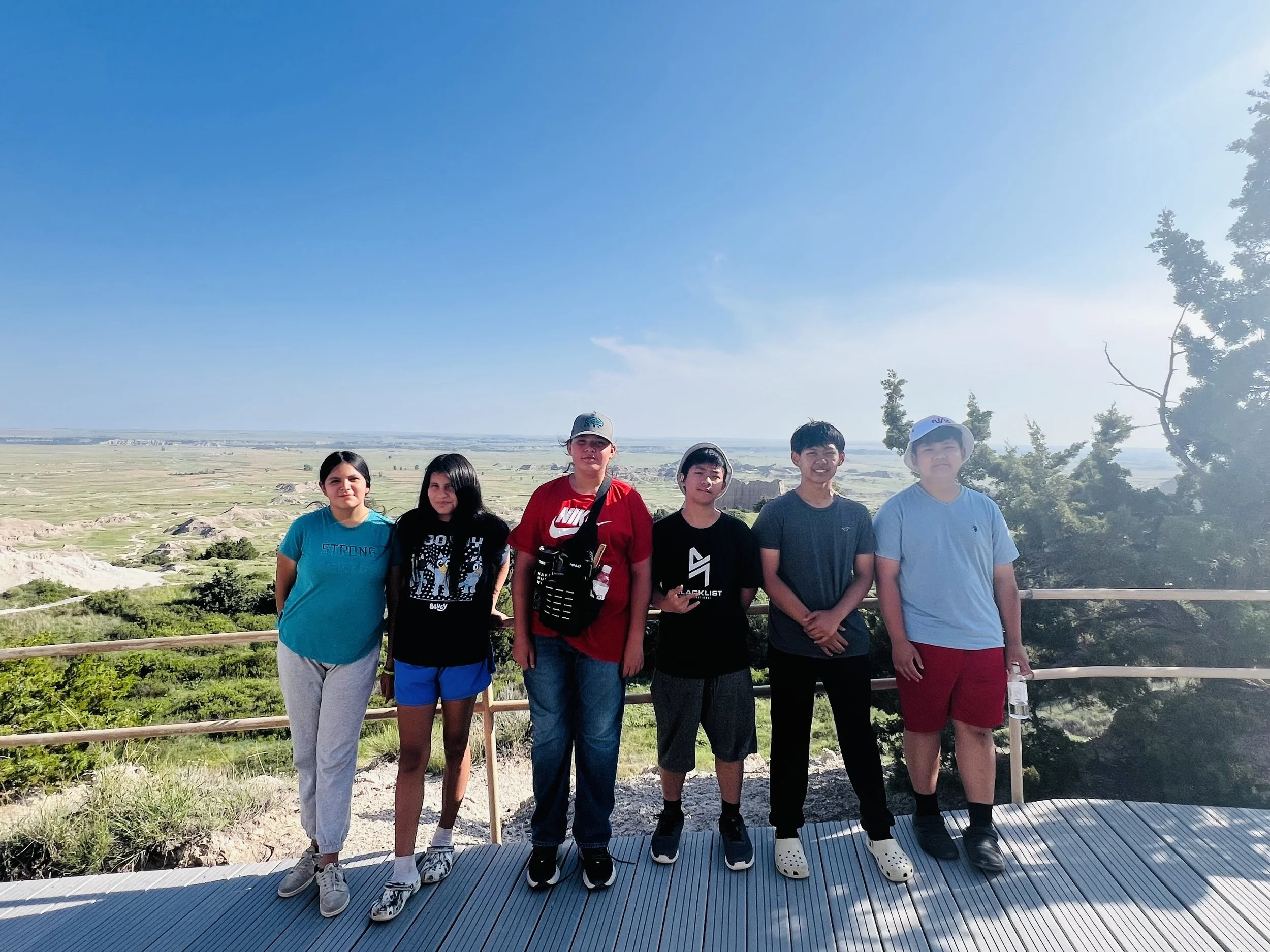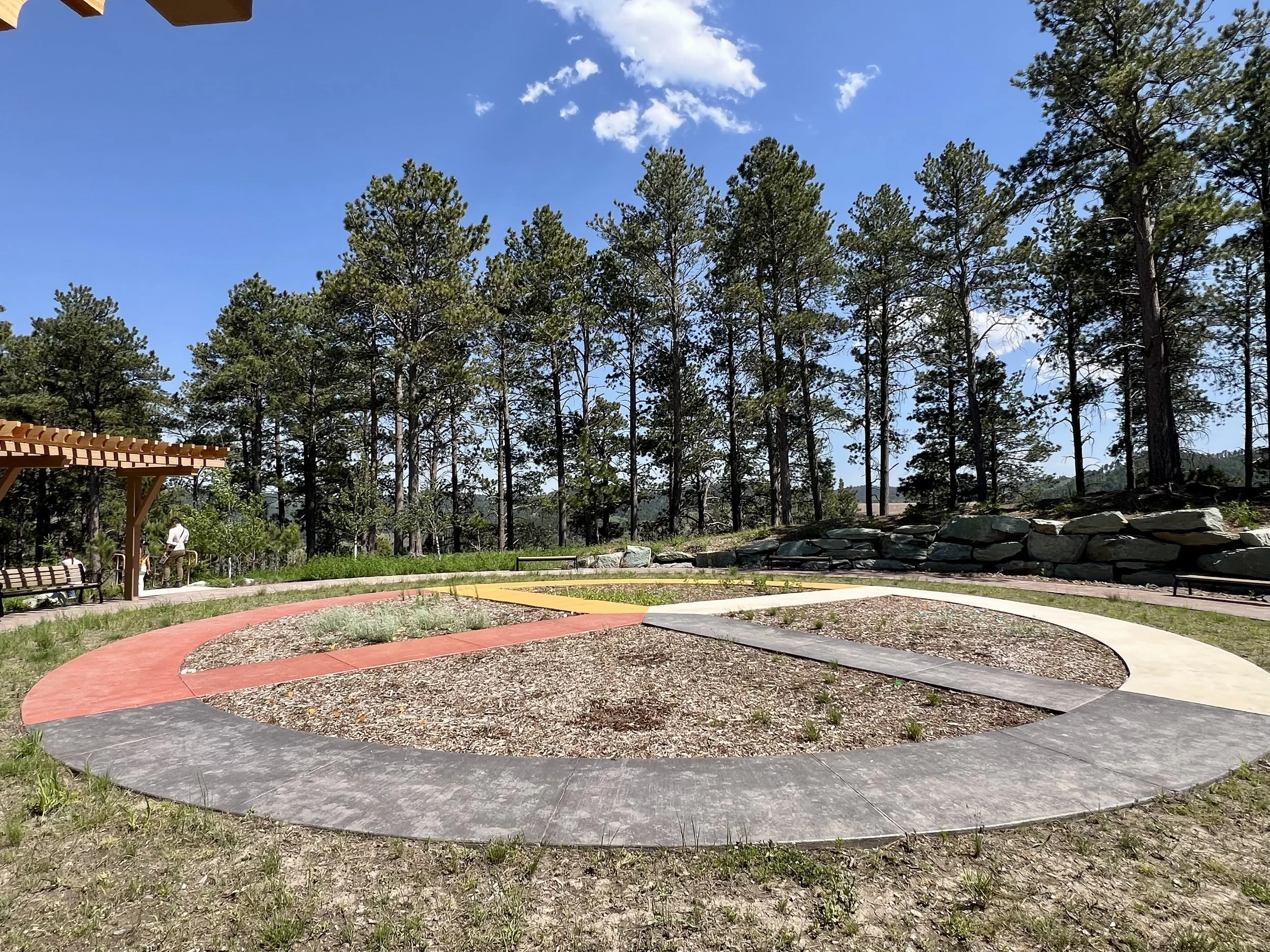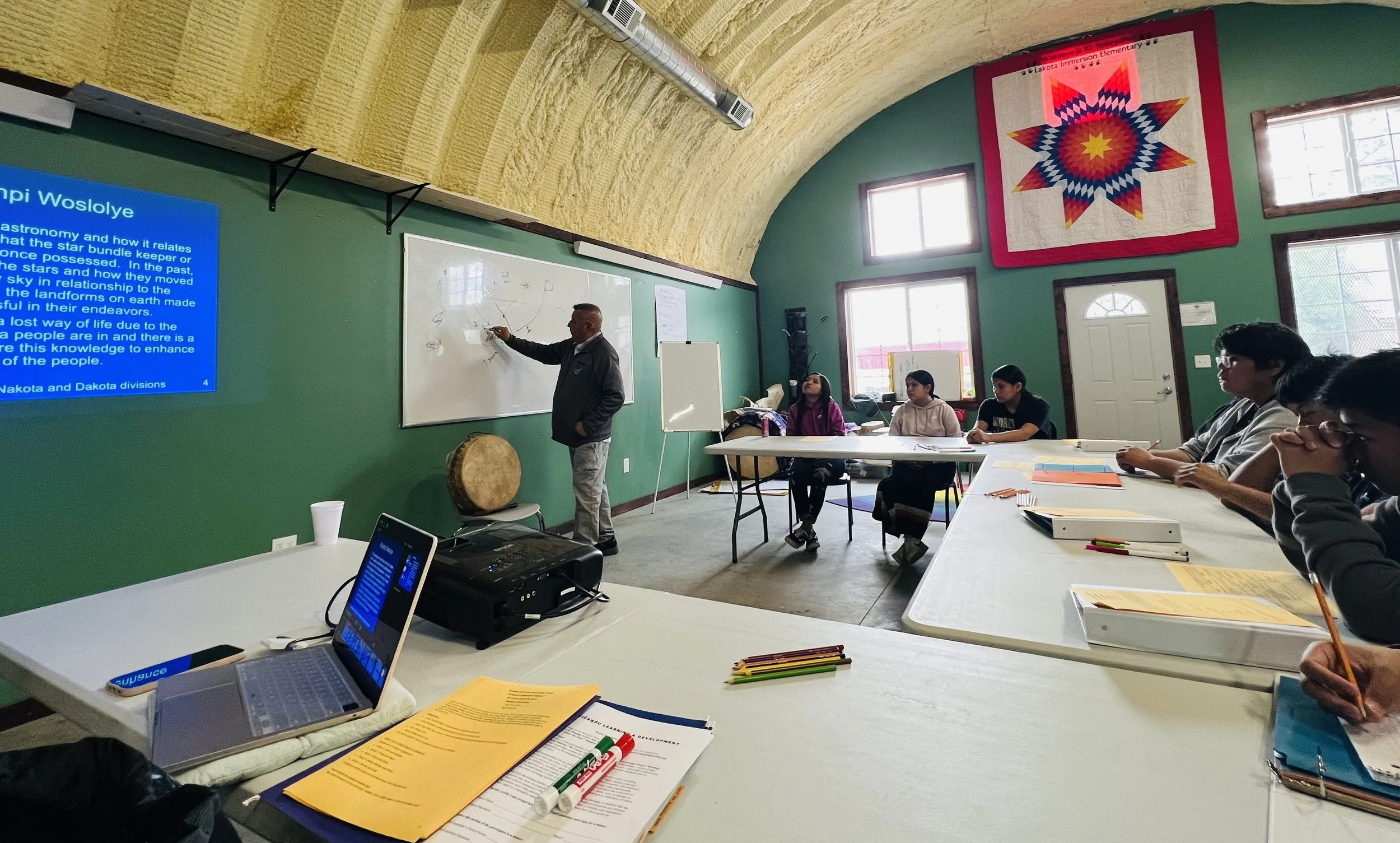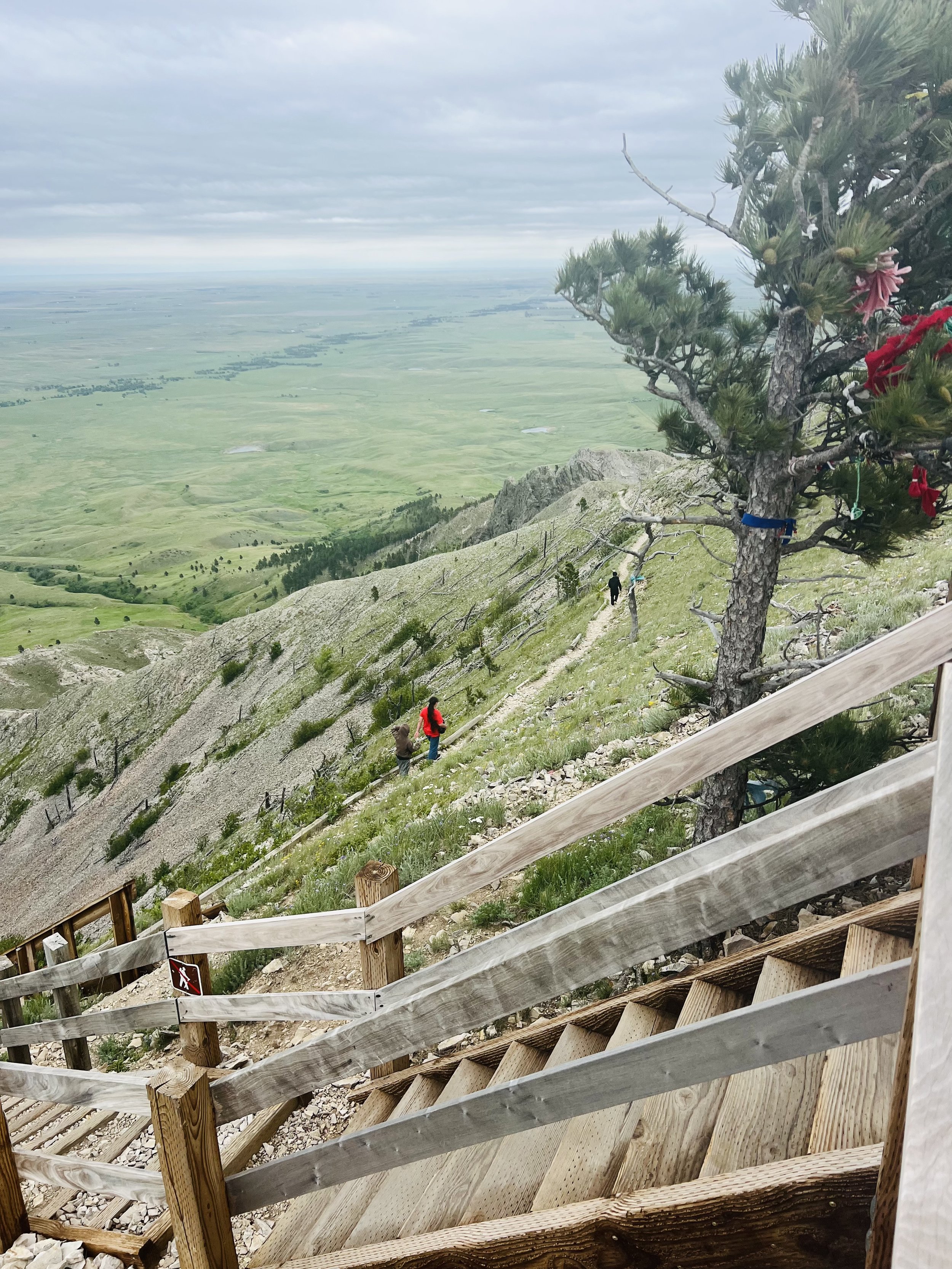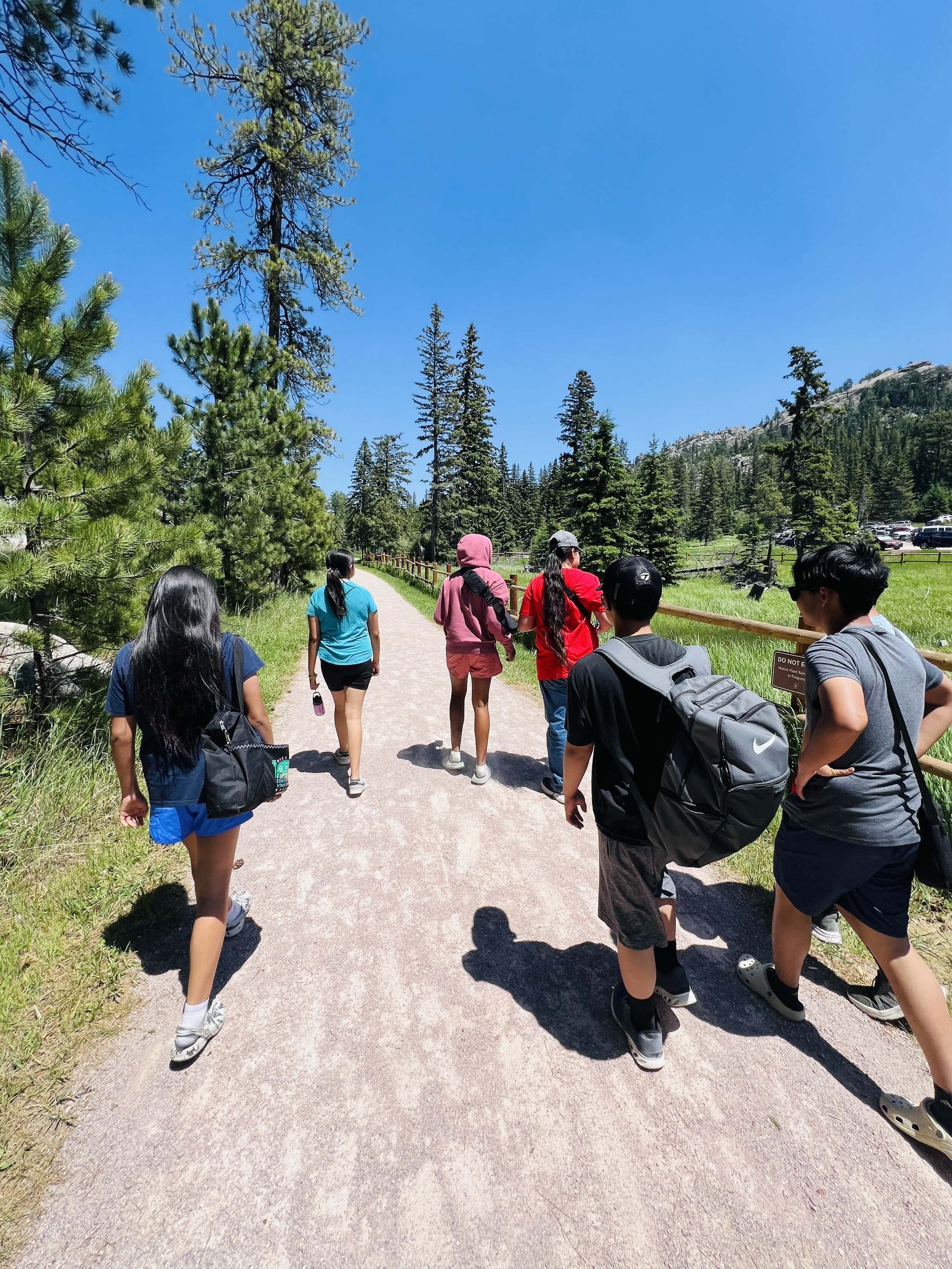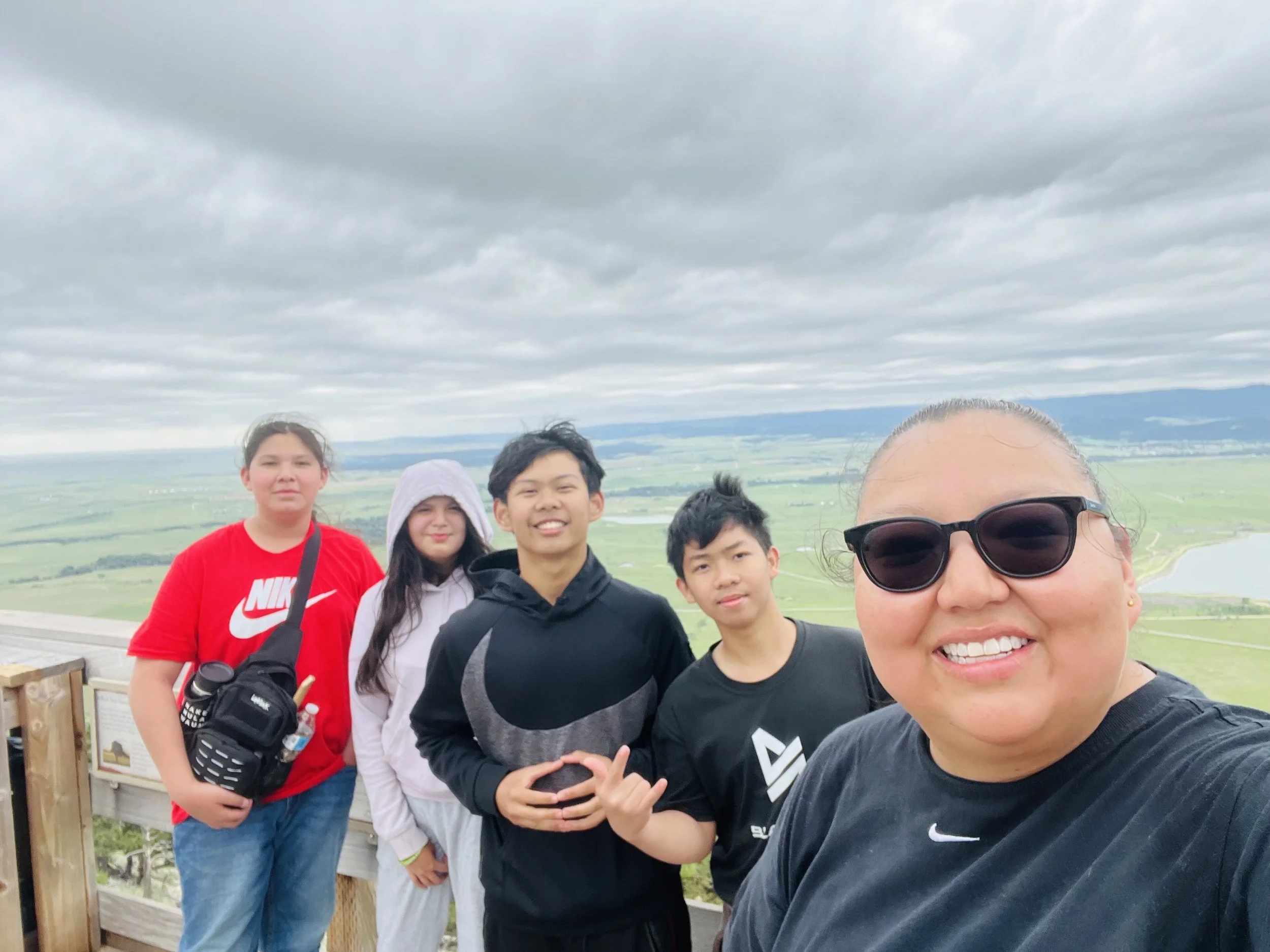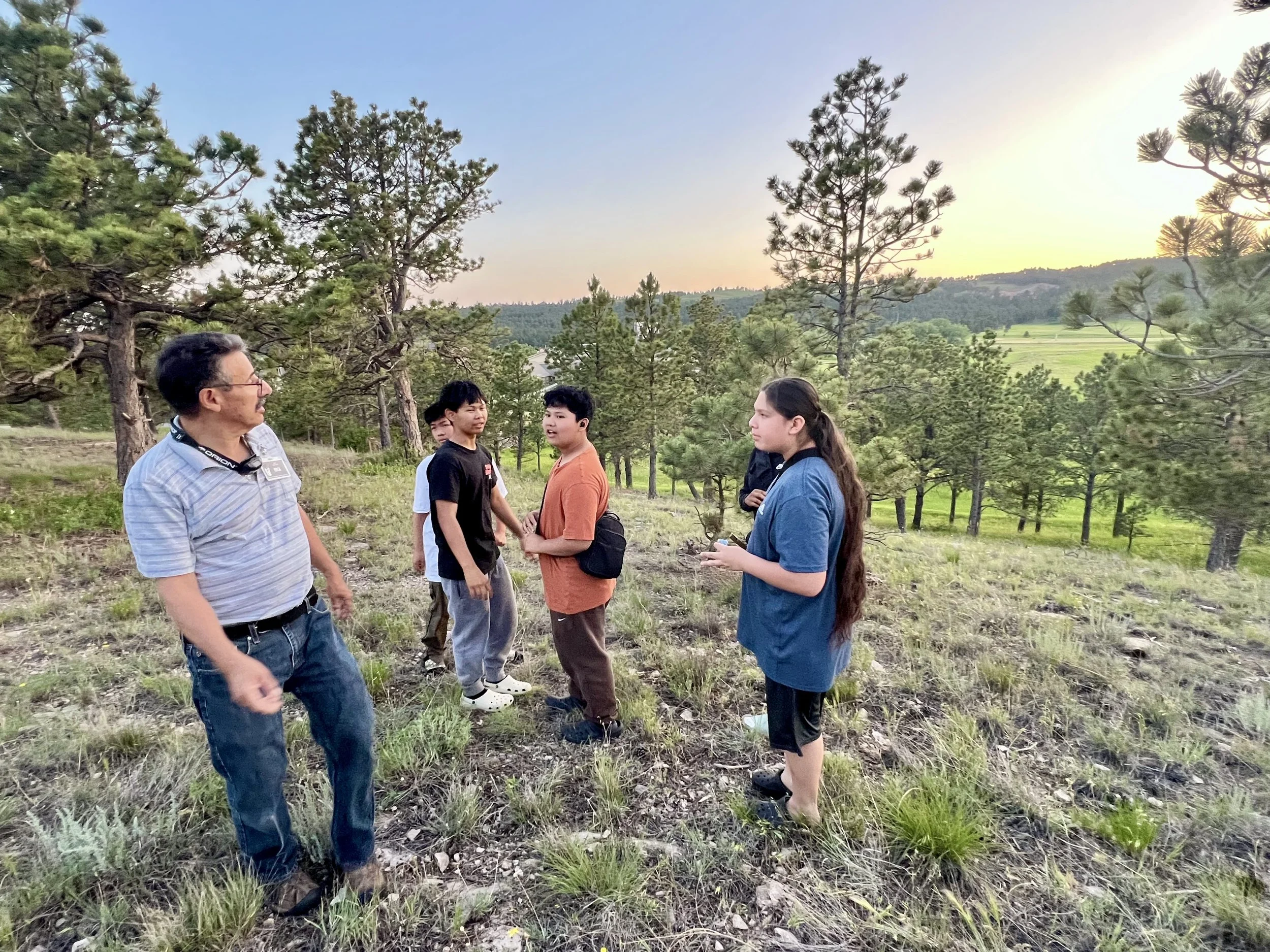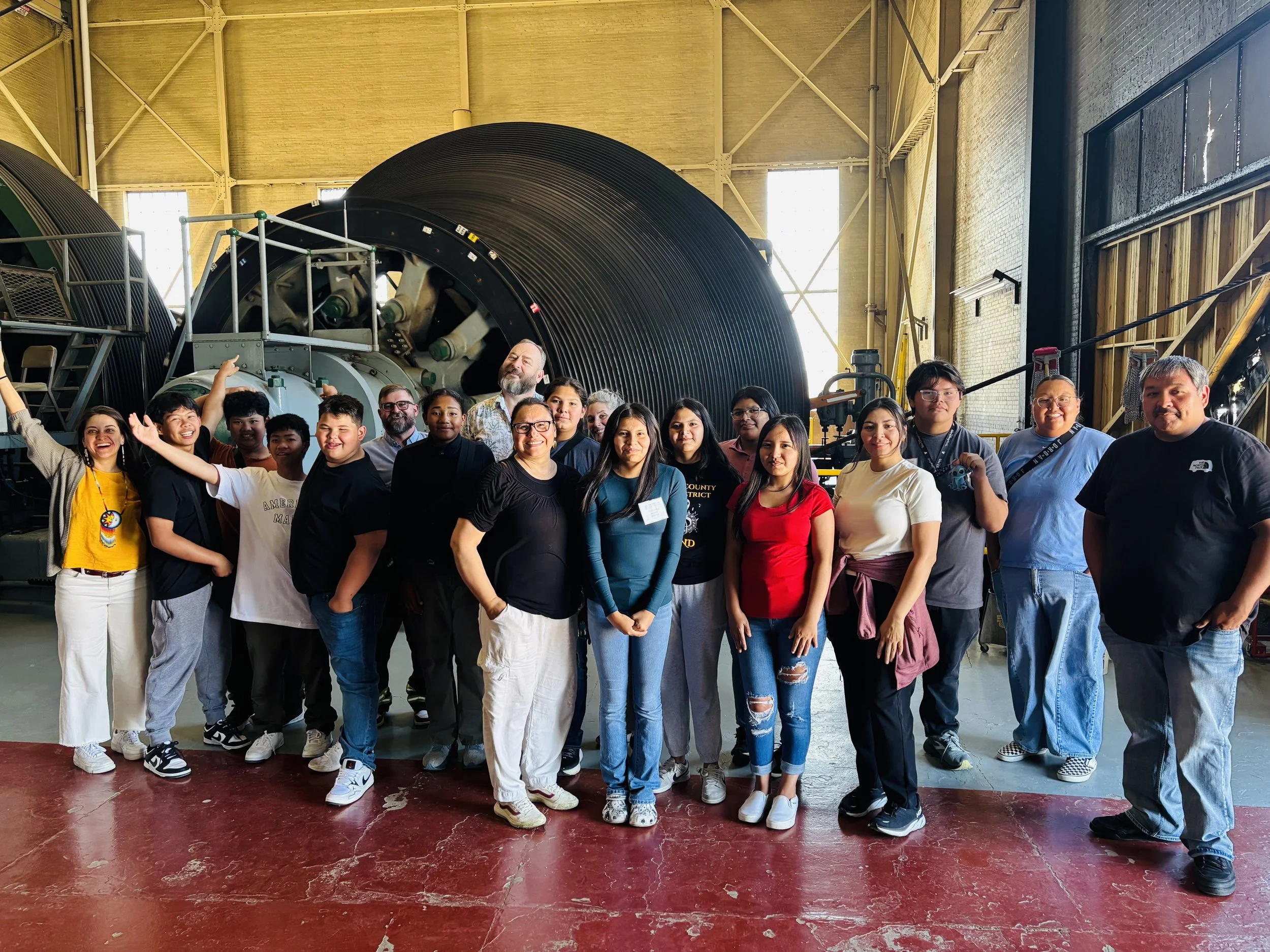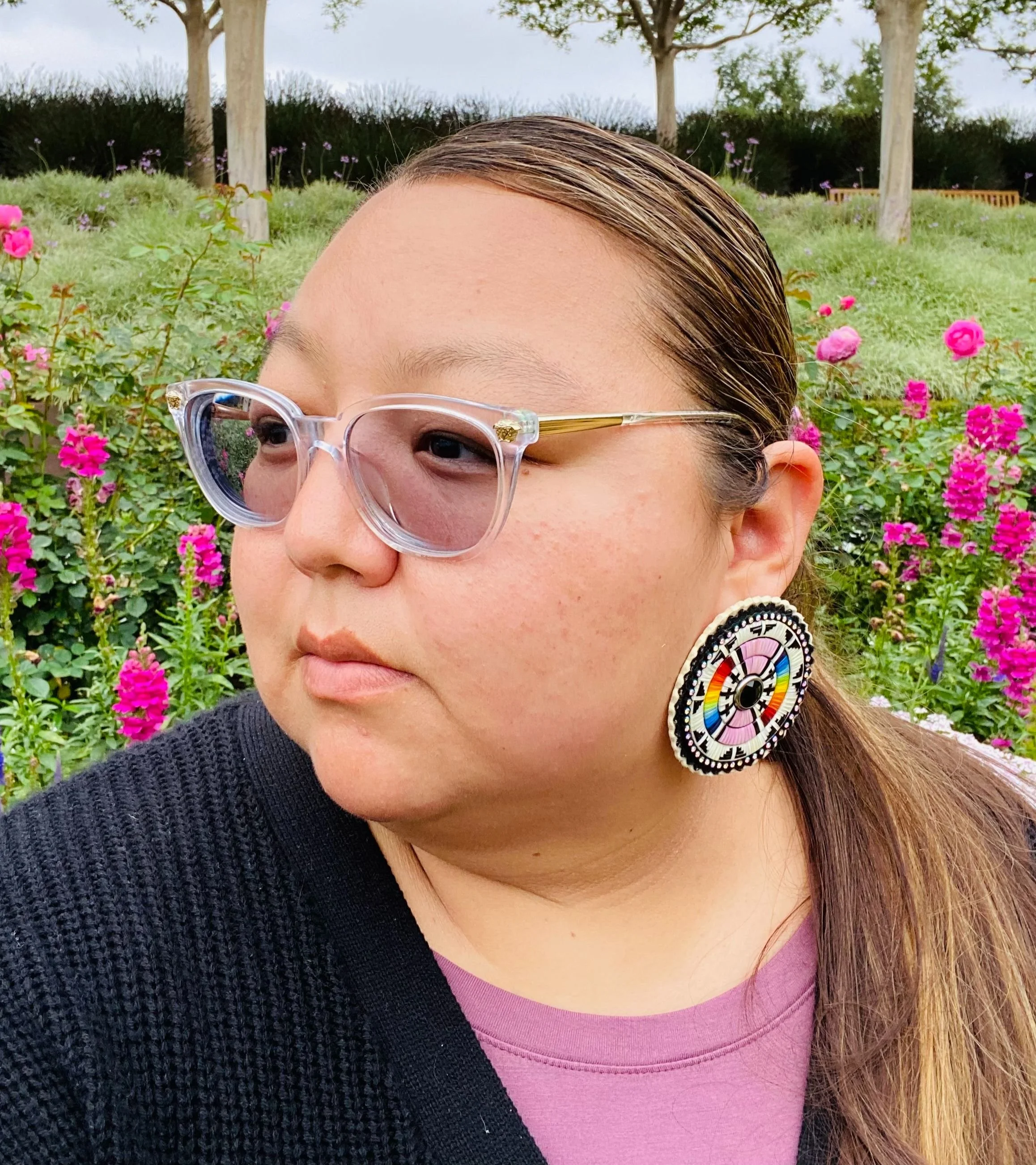Bringing Lakota star knowledge into classrooms and under the night sky—through storytelling, science, and sacred sites.
Honoring the Stars: A Sicangu-NASA Summer to Remember
This summer, students from Rosebud traveled to the Pahá Sápa (Black Hills) as part of a groundbreaking partnership between Sicangu Co, NASA, and the Rosebud Sioux Tribe Education Department. The Sicangu-NASA Star Knowledge Project is reconnecting our Lakota wak̇aŋyeja (youth/children) with traditional star knowledge through immersive learning experiences—where Lakota teachings and modern science walk together under the same sky.
The Sicangu-NASA Summer Knowledge Experience enhances students’ awareness and understanding of the stars from both Western and Lakota perspectives. Through hands-on experiments, storytelling sessions, and field trips, students gain a deeper grasp of the science behind astronomy and traditional Lakota star knowledge—and how both can shape their lives, learning, and futures.
For Lydia Yellow Hawk, Education Outreach Coordinator at Sicangu Co, this work fills a gap she experienced in her own education:
“I went to school on Rosebud. I never saw our knowledge in the classroom much. Star stories were something I heard at ceremonies or family gatherings—not through lessons or textbooks. That’s why this program matters.”
🌄 A Journey Through Sacred Lands
To celebrate the Summer Solstice, students and partners visited several sacred sites across Pahá Sápa. Their journey included:
The Journey Museum in Rapid City, where youth explored constellations in a darkened planetarium and listened to Lakota author Joseph Marshall share traditional star stories.
Crazy Horse Memorial, a powerful first-time visit for many students. They walked up close to the base of the monument.
Sanford Underground Research Facility in Lead, SD, where students met with scientists, toured a native plant garden labeled in Lakota, and explored future STEM career paths.
Hidden Valley Observatory, where the Black Hills Astronomical Society hosted a special Star Party and presentation. Students used advanced telescopes to observe constellations and explored astronomy apps like Stellarium to deepen their understanding of the night sky. They loved this!
Black Elk Peak, Bear Butte, and Badlands National Park, where hikes and overnight camping grounded star knowledge in sacred landscapes.
“Every part of the trip was rooted in Lakota worldview,” Lydia shared. “And for many students, it was their first time visiting these sacred sites or even using a telescope.”
Reclaiming Star Knowledge in the Classroom
This program is just the beginning. Lydia and fellow educator Caitlin Bordeaux are co-developing a culturally-rooted unit plan that can be shared with schools across the region. The goal: equip teachers to bring Lakota star knowledge into classrooms in a way that uplifts Indigenous perspectives.
“We want to situate Lakota knowledge before western knowledge,” Lydia said. “That’s why we’re creating materials, launching science clubs, and developing podcasts—to ensure this knowledge is passed on.”
With guidance from elders like Dwayne Hollow Horn Bear and creative collaborations with partners like NASA and the Red Nation Podcast, the Sicangu-NASA Star Knowledge Project is helping students look to the sky—and see themselves reflected in it.
Who This Program Is For
The Sicangu-NASA Star Knowledge Project was opened to:
Local wak̇aŋyeja in grades 6–12
Students with an interest in science, technology, engineering, or math (STEM).
Piláuŋyayapi – We Thank Our Partners
We extend our heartfelt gratitude to everyone who made the Sicangu-NASA Summer Knowledge Experience possible.
Special thanks to our incredible hosts and partners:
The Journey Museum in Rapid City, SD
Crazy Horse Memorial
Sanford Underground Research Facility in Lead, SD
Hidden Valley Observatory in Rapid City, SD
Black Hills Astronomical Society
Your wačántognaka (generosity) and wíyukčaŋ (knowledge/being a part of nature) helped create unforgettable learning moments for our wak̇aŋyeja—rooted in culture, science, and connection to land and sky.
We’re also deeply grateful to NASA and the Rosebud Sioux Tribe Education Department, as well as our donors, educators, and supporters.
Together, we’re helping our wak̇aŋyeja reclaim the stars.
Want to Learn More?
If you’re interested in receiving more information about Lakota Star Knowledge, feel free to reply to this email. We’d love to share more with you!
Lydia Yellow Hawk
Lydia Yellow Hawk is Sicangu Lakota from the Rosebud Reservation, He Dog community in South Dakota and she is the Education Outreach Coordinator. She graduated from Miami University (Ohio) with a B.A. in Anthropology and a minor in Political Science. After graduating from Miami University, Lydia joined Teach For America (TFA) as a 2019 corps member. She taught middle school social studies and science at the same school she attended as a child in Rosebud. As a Lakota educator and community member, she not only taught academic subjects but also incorporated Lakota language and culture into her lessons. Her dedication to preserving and sharing Lakota culture was evident in her classroom, where her grandmother and father were regular visitors, enriching her students’ learning through storytelling and song.
Following TFA, Lydia's academic journey led her to UCLA for graduate school, where she received her M.A. in American Indian Studies. Her M.A. thesis, titled "Taking the Teaching of our Ancestors:" Decolonizing History, Tribalography, & Lakota Storytellers," examines Lakota storytellers, specifically through the works of Dakota anthropologist Ella Cara Deloria, and analyzes the various research methods and spaces she articulated her communities’ histories with her “kinship methodology.” Lydia’s other research interests include decolonizing methodologies, Indigenous social justice activism, and Indigenous self-determination and sovereignty.
Lydia currently works as an Education Outreach Coordinator for Sicangu Co on the Sicangu-NASA Star Knowledge and Immersive Learning Experiences and Rural Networking (iLEARN) projects. Outside of work, Lydia enjoys hiking with her two dogs, listening to her favorite podcast shows, and spending time with her family.

